Nestle has bought the world's most fashionable boutique coffee and is determined to enter the high-end market.
For professional baristas, please follow the coffee workshop (Wechat official account cafe_style)
Blue Bottle Coffee, the world's most popular boutique coffee brand, sold most of its shares to Nestl é.
Nestl é did not disclose the price of the deal in its announcement, but Bloomberg learned from people familiar with the matter that Nestl é acquired a 68 per cent stake in Blue Bottle for $425 million, with the Financial Times giving a figure of "up to $500m".
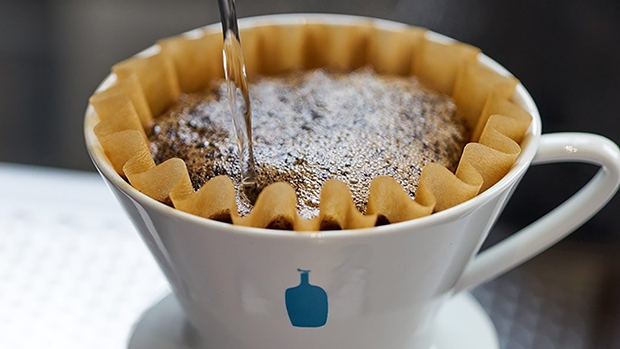
(photo from: Nestle website)
When it comes to coffee chains, most people think of Starbucks, but for Americans living in New York and California, the coffee shop called Blue Bottle Coffee may be in their favor. Founded in 2002, Blue Bottle is leading the third-generation coffee trend. It is popular among American coffee lovers for its high-quality coffee beans and coffee blending technology.
In 2015, Blue Bottle opened its first store in Japan in Tokyo, followed by a second store just a month later. By 2016, Blue Bottle had 29 stores in the United States and Japan, a small number, but its popularity continues to rise, and Blue Bottle plans to have 55 stores in the United States and Japan this year.
Americans' enthusiasm for coffee is also growing. According to a survey released this year by the boutique Coffee Association (Specialty Coffee Association), the proportion of respondents who drank coffee in a day rose 5 percentage points from last year to 62%, the first increase since the figure fell in 2013. Boutique coffee, represented by Blue Bottle and STUMPTOWN, is the most promising area, and the association says it now accounts for 15% and 20% of the entire u.s. coffee market.
In addition to the rapid growth, expensive boutique coffee can also bring higher profits than ordinary coffee or instant coffee, which is why many giants have entered the high-end coffee market in recent years.
Starbucks has launched a higher-end "Reserve" line and baking factory store Roastery, while Nestl é's rival JAB Group already owns STUMPTOWN, Jacobs Douwe Egberts, Peet's Coffee&Tea and other high-end coffee brands.
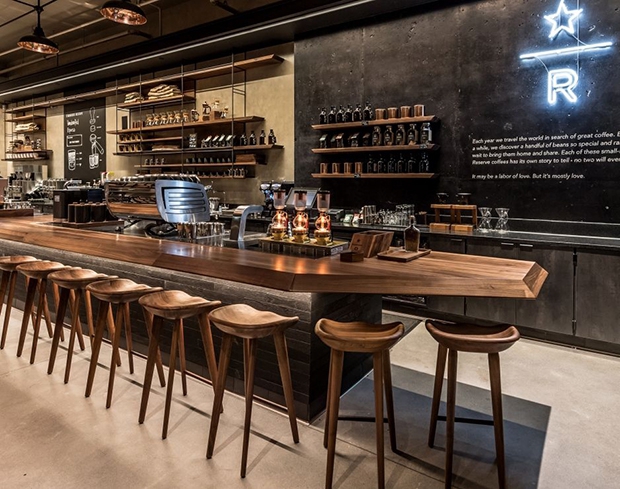
(picture from: Starbucks)
Nestl é, as the world's largest packaged food company, has made few achievements in the high-end market. Recruiting Blue Bottle, known as "Apple in the coffee world", is obviously a sign of its entry into the high-end market, and it also helps to improve the company's weak performance in North America: affected by the slowdown in global economic growth and changes in consumer tastes, Nestl é's revenue in the first quarter of this year is not ideal. Income is only the same as in the same period last year.
In a press release, Nestl é sets out its ambitions for the high-end coffee market:
Blue Bottle Coffee strengthens Nestl é's position in the United States, the world's largest coffee market.
Blue Bottle will remain independent after the deal is completed, and Nestl é's stake will not only help it expand faster, but also bring its coffee roasting technology and product packaging line, as Blue Bottle sells ready-to-drink cold-extracted coffee in some whole foods supermarkets (Whole Foods) in addition to freshly brewed coffee.
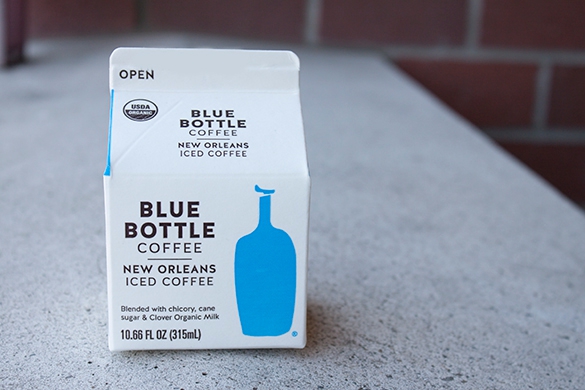
(picture from: Whole Foods)
However, there seems to be a wide generation gap between 15-year-old Blue Bottle and 151year-old Nestl é, and some consumers worry that it will become old-fashioned in a big corporate culture. In response, Blue Bottle's CEO Bryan Meehan says there is no need to panic:
We will continue to provide delicious coffee, maintain the quality of hospitality and focus on our concept of sustainable development.
Important Notice :
前街咖啡 FrontStreet Coffee has moved to new addredd:
FrontStreet Coffee Address: 315,Donghua East Road,GuangZhou
Tel:020 38364473
- Prev
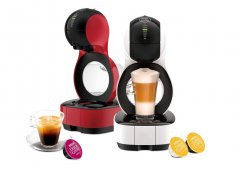
The introduction of light and shadow aesthetics capsule coffee new machine promotion of less than 3,000
The exchange of professional baristas please follow the coffee workshop (Wechat official account cafe_style) coffee machine brand NESCAFE Dolce Gusto Nestl é Doos capsule coffee machine launched a new capsule coffee machine Lumio, the appearance of the brand NESCAFE Dolce Gusto DG, the side looks protruding and backward, named Lumio uses both light and light image; emphasize the sun shining through
- Next
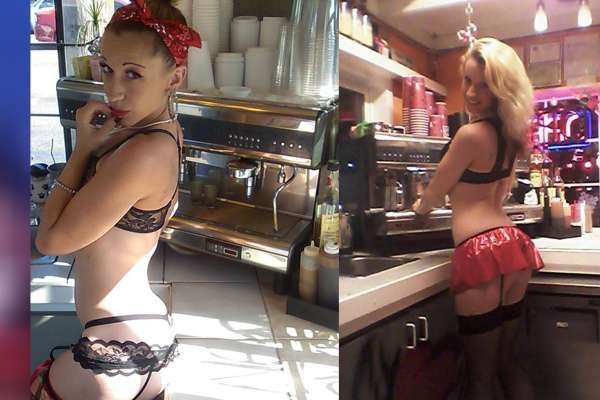
Bikini baristas in the United States sued the city government for discrimination against women: "We can do a good job."
Seattle in the United States, which owns Starbucks' founding store, has always been the first-level war zone of coffee shops, but what people are most interested in talking about is the Delaisse Coffee stand, which runs on the side of the road and serves motorists. It is even called coffee beauty by the Seattle Times. As long as you roll down the window, you can enjoy the coffee-making process of baristas who wear only bikinis. But this
Related
- What is the difference between Indonesian Sumatra Mantinin coffee and gold Mantinin? How to distinguish between real and fake golden Mantelin coffee?
- What does bypass mean in coffee? Why can hand-brewed coffee and water make it better?
- Unexpected! Ruixing Telunsu lattes use a smoothie machine to foam milk?!
- % Arabia's first store in Henan opens into the village?! Netizen: Thought it was P's
- Does an authentic standard mocha coffee recipe use chocolate sauce or powder? Mocha Latte/Dirty Coffee/Salty Mocha Coffee Recipe Share!
- What is the difference between Vietnam egg coffee and Norway egg coffee? Hand-brewed single product coffee filter paper filter cloth filter flat solution!
- What is the difference between sun-cured and honey-treated coffee? What are the differences in the flavor characteristics of sun-honey coffee?
- How to make Italian latte! How much milk does a standard latte use/what should the ratio of coffee to milk be?
- How to make butter American/butter latte/butter Dirty coffee? Is hand-brewed coffee good with butter?
- Is Dirty the cold version of Australian White? What is the difference between dirty coffee/decent coffee and Australian white espresso?

